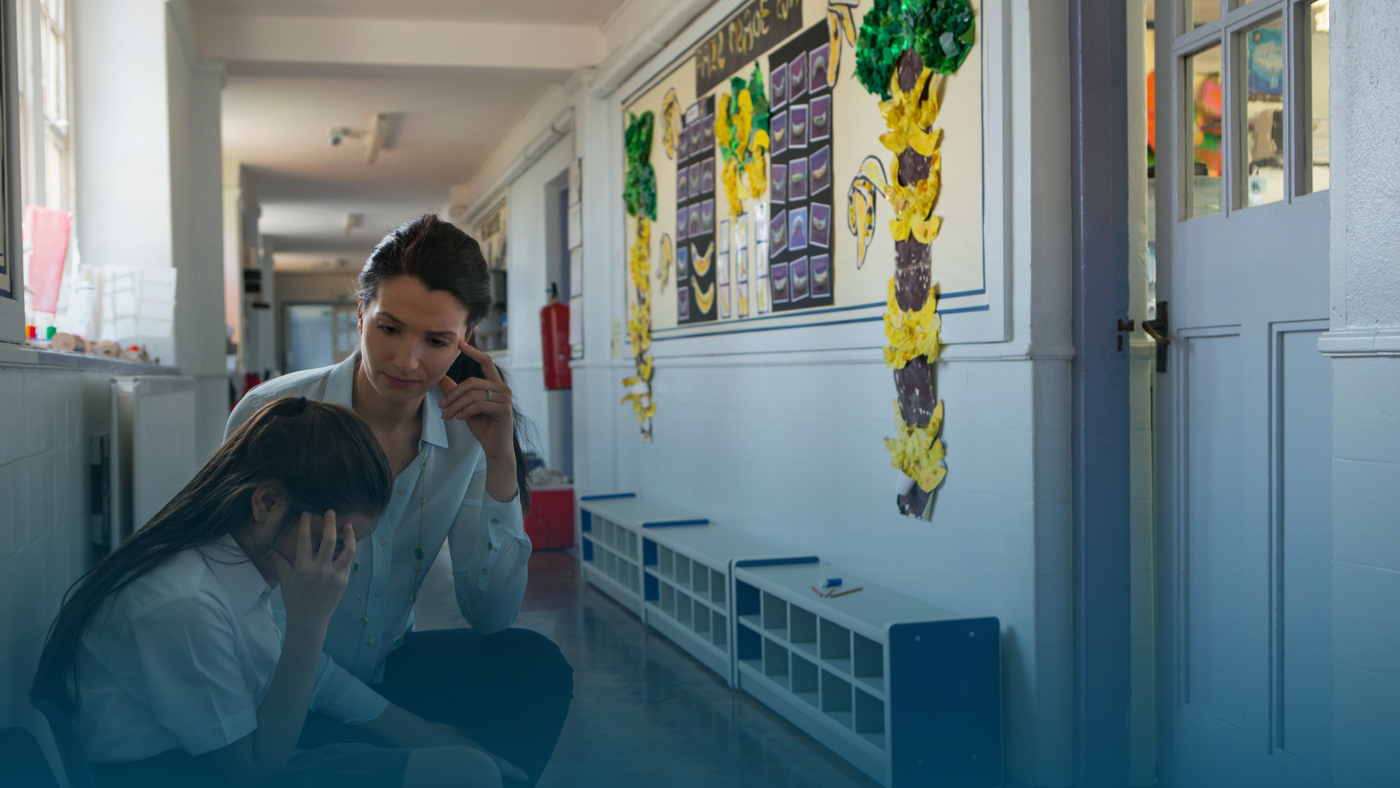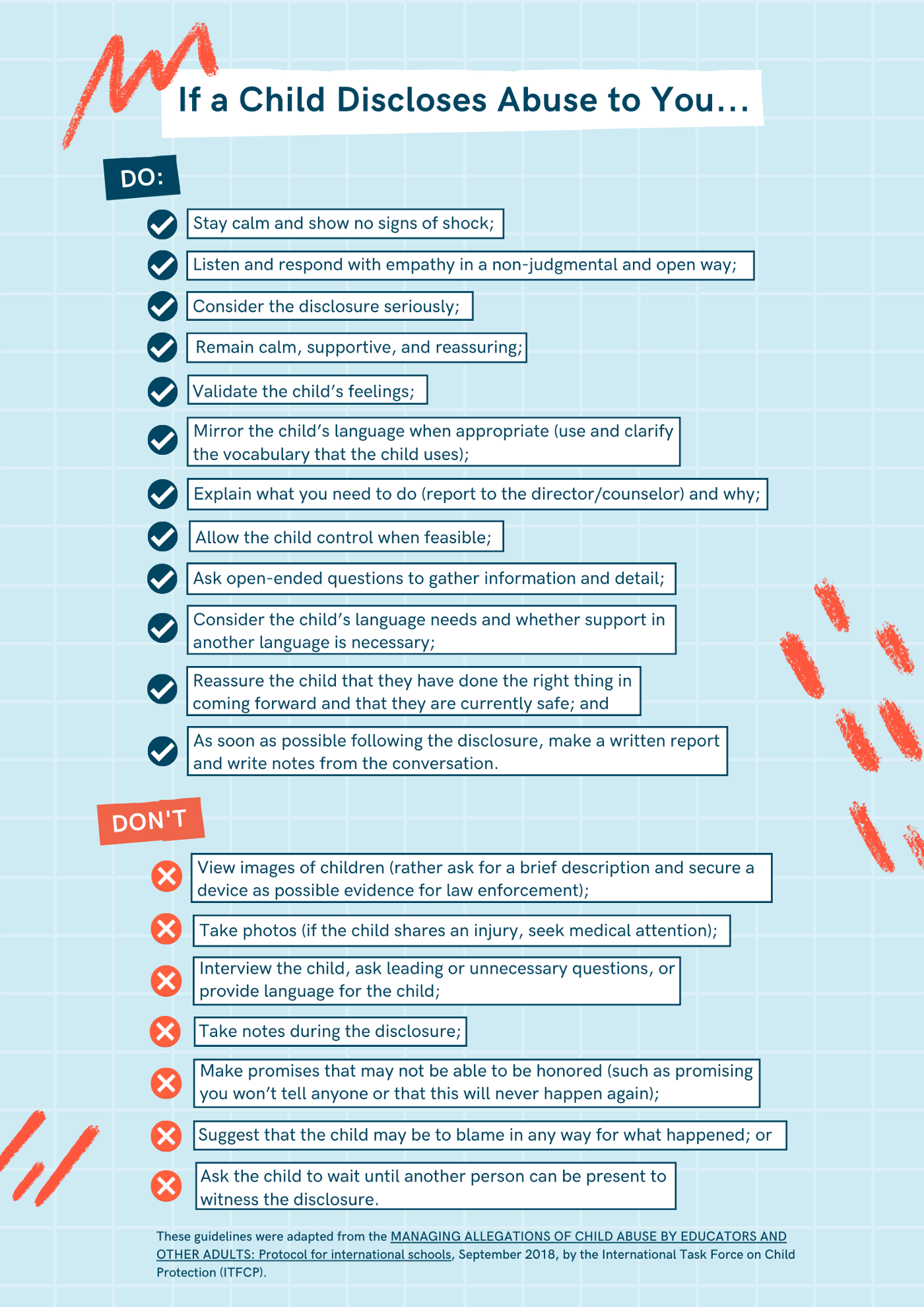
As a new school year begins, and education professionals establish and re-establish respectful and caring relationships with students, parents, and coworkers, we open channels of communication. These channels are critical in building the safe spaces needed for noting child safeguarding and protection concerns, receiving disclosures of abuse, and reporting concerns and disclosures to the safeguarding lead or child protection team.
1. Everyone who works with children in the school community, including administrators, teachers, bus monitors, reading volunteers, coaches, and outside contractors, have an ethical obligation to report concerns of abuse to the child protection designate or an administrator. It is crucial that all school staff and community members know how to report child protection concerns to the child safeguarding and protection team at your school.
2. Changes in a student’s behavior are worth noting and reporting. For example, if a usually happy student becomes sullen or withdrawn, the counselor or another trusted adult should check in with that student to see if they are ok. School activities like art and writing projects might also give a glimpse into a student’s thoughts, and any concerns those might raise should be shared with the counselor, child protection designate, or the child protection team.
3. Professional boundaries should be outlined in your school’s Code of Conduct. Everyone who works with children at the school or through school-related activities should receive the Code of Conduct in a language they understand, be given a chance to ask questions, and then be required to sign it. Maintaining professional boundaries is the best way for the school to avoid liability and for staff to reduce the risk of being accused of inappropriate behavior. A few key points to include are:
- Interactions between adults and students should be observable and interruptible. We encourage the use of windows that provide a clear view into classrooms and open doors when a teacher is working one-on-one with a student.
- It is the adult’s responsibility to set and respect boundaries. If a child attempts to involve an adult in inappropriate behavior, the adult must reject the overture and inform the school director or their supervisor of the exchange.
- Joking and sharing of personal stories should never include sexual or other inappropriate content. Sharing personal stories or jokes that reference sex or overly personal details might be a sign that an adult is testing the school’s professional culture to see where boundaries can be crossed.
- Physical contact with children should occur only to meet the needs of the child in a way that is appropriate, completely nonsexual, and never in private. Touching can be misconstrued both by the recipient and by those who observe it. Norms of physical contact vary by age group, culture, and other factors. Some teachers create classroom rules about physical contact, both staff-student and student-student, through class discussions at the beginning of the year so boundaries are clear and can be referred to as needed.
4. If you notice that a teacher, administrator, or other staff member is not maintaining professional boundaries, report your concerns to the appropriate administrator or child protection team member. When questioning whether to report a colleague’s behavior, don’t ask yourself, “What if I’m wrong?” Instead, ask, “What if I’m right?”
Download the full resource here.
Thank you for all that you do to keep the students in your care safe. Find additional free resources and guidelines on ICMEC’s Education Portal at EdPortal.icmec.org.